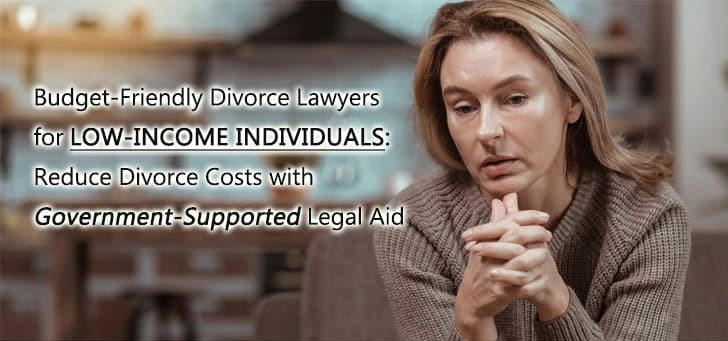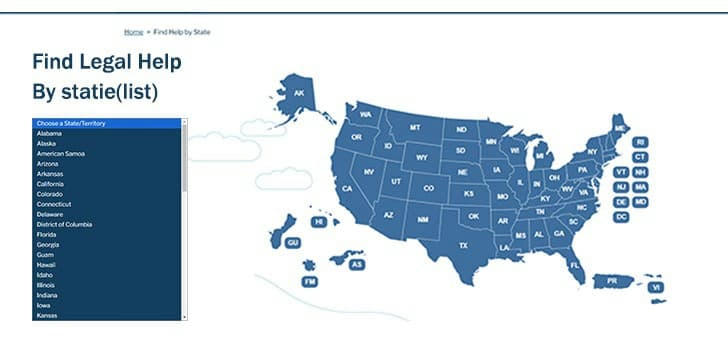Budget-Friendly Divorce Lawyers for Low-Income Individuals: Reduce Divorce Costs with Government-Supported Legal Aid
Divorce can be emotionally and financially challenging, especially for low-income individuals. High legal fees often make the process feel overwhelming. Fortunately, government-supported legal aid programs and budget-friendly divorce lawyers in the U.S. provide accessible solutions to reduce costs while ensuring competent representation.

Government-Supported Legal Aid Programs
Several U.S. organizations provide legal support for low-income individuals:
Legal Aid Societies: Nonprofits offering assistance with divorce, custody, and domestic violence cases.
Court Fee Waivers: Many states allow applicants to reduce or subsidize filing fees.
State and Local Programs: Examples include Maryland Legal Aid and the Legal Aid Foundation of Los Angeles (LAFLA), providing statewide support for family law issues.
Community-Focused Legal Groups: Organizations such as API Justice and Legal Aid Society (NY) provide targeted services, multilingual support, and representation in family law disputes.
These resources allow low-income individuals to access legal help without overwhelming financial pressure.
How Low-Cost Divorce Lawyers Help You Save
Affordable divorce attorneys focus on essential legal services, helping you:
Reduce unnecessary paperwork and court fees
Avoid costly delays in proceedings
Receive tailored guidance for uncontested or straightforward cases
By targeting only necessary services, these lawyers can significantly lower your legal expenses compared to standard attorneys.
Flexible Payment Plans for Managing Costs
Many lawyers offer payment solutions designed for low-income clients:
Installment plans that spread legal fees over time
Sliding scale fees based on income
Reduced-cost cases for those facing financial hardship
These options make quality legal representation manageable, even on a limited budget.
Real-Life Examples of How Low-Income Individuals Benefit
Beneficiary 1: Annie’s Legal Aid Society Experience
Annie, a 38-year-old single mother with limited income, wanted to end an unhappy marriage. She qualified for assistance from the Legal Aid Society. After submitting proof of income and necessary documents, Annie received legal representation, completed her divorce, and arranged child custody—all without paying high attorney fees.
Beneficiary 2: Mike’s Court Fee Waiver and Sliding Scale Experience
Mike, a 45-year-old retired worker, worried about attorney and court costs. He applied for a court fee waiver and contacted a divorce lawyer offering sliding scale fees based on income. With these supports, Mike successfully completed his divorce while minimizing financial strain and receiving professional guidance.
Beneficiary 3: Sarah’s Online Low-Cost Lawyer Experience
Sarah, a 50-year-old freelancer with an unstable income, found a budget-friendly lawyer through an online legal platform. Using video consultations and electronic document handling reduced in-person meeting costs. Sarah completed her divorce successfully, saving money while receiving clear legal advice and support.

How to Find the Right Lawyer
Compare providers for experience and fees.
Check eligibility for legal aid or reduced-cost programs.
Ask about flexible payment options.
Confirm expertise in family law to ensure reliable guidance.
Using these strategies ensures affordable and competent representation during your divorce.
How to Qualify and Apply for Legal Aid
Check Eligibility – Income must usually be below a certain threshold; household size and special circumstances may also be considered.
Prepare Documents – Proof of income, ID, and divorce-related papers.
Apply – Contact local Legal Aid Societies, state programs, or community legal groups; submit required forms.
Get Representation – Once approved, a lawyer will guide you through your divorce, paperwork, and court proceedings.
Even with limited income, low-income individuals in the U.S. can secure affordable divorce legal support. By leveraging government-supported legal aid, payment plans, and community resources, you can reduce divorce costs, protect your rights, and navigate the process with confidence.
Disclaimer: This content is for informational purposes only and does not constitute legal advice. Consult a qualified divorce lawyer for guidance specific to your situation.
Published on August 21, 2025
